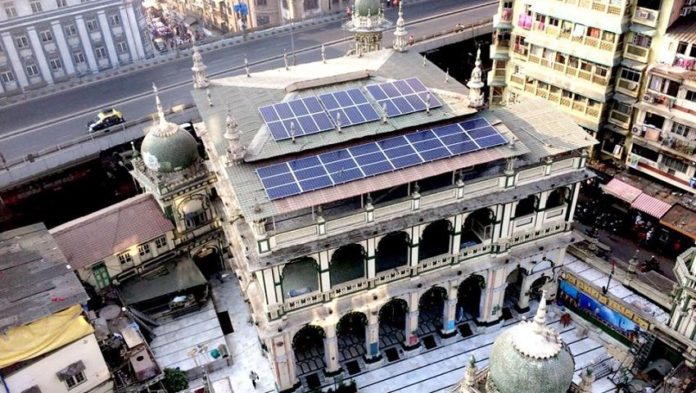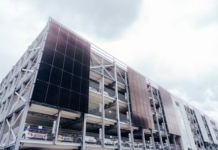
In the month of Ramzan, the iconic Minara Masjid is decked up in bright green lights and has thousands thronging it for prayers. It might seem like an uphill task for the mosque to manage its electricity expenses but the reality is quite the opposite.
Over the past four months, the mosque located at Mohammad Ali Road has been saving half of its electricity bill amount after installing a 15 kilowatt power solar panel on its roof in January. “After the installation of the meter and other amenities, the entire system started functioning from February,” said Abdul Wahab, trustee, Minara Masjid trust. “Our monthly electricity bill has cut down to Rs25,000 as opposed to Rs50,000 that we had to pay before the solar power installation. We have already saved a lakh in four months by going green.”
Lights, fans and air conditioners at all common areas within the mosque are powered by solar power, said Wahab.
While a number of temples such as Siddhivinayak in Prabhadevi, The International Society for Krishna Consciousness (ISCKON) Juhu, Shri Krishna Pranami Mandir in Bhuleshwar and a number of churches in the city have adopted solar, Minara Masjid is the first mosque to move away from traditional coal and thermal combustion for electricity and adopt the green initiative.
“Apart from the monetary savings, the idea is to tell devotees about the importance of reduction in carbon emissions from the environment,” said Wahab. “We have been approached by almost 10 different mosques and churches over the past four months to understand how we installed the solar setup. We hope that the efforts are replicated and moving to solar becomes a mass movement, at least for all religious institutions in the city.”
A total of 46 solar panels were installed at the masjid in January that generates 45 kilowatt-hour (kWh) to 70 kWh solar power per day. A two bedroom-hall-kitchen apartment uses an average of 8 to 10 kWh of electricity daily.
“The solar power varies on the basis of weather conditions. If it is a completely sunny day, maximum benefits will be reaped with 70kwh output from the project,” said Sohail Shaikh, director and technical head, Green Power Consortium Management Pvt Ltd., which set up the project. “The unit will generate 21,500 kWh annually for 25 years and it will result in a net saving of Rs3.2 lakh per annum.”
The trust spent a total of Rs 11.8 lakh to set up the project. “We expect the money invested by us will be reimbursed over the next five years,” said Wahab. “Overall, the green power has helped us and if its benefits are understood properly, it can transform the entire city.”
Source: hindustantimes.com


















